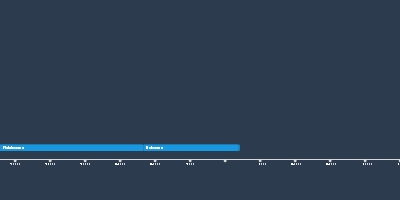Holocene (1 jan 11700 ano antes da era comum – 31 dez 1949 ano)
Descrição:
The Holocene is the geological epoch which ended in 1950. It began approximately 11,700 years ago after the last major ice age. It is a period of relatively stable and warm climatic conditions that have facilitated the development of human civilization.Key features of the Holocene include:
Stable Climate: Compared to previous epochs, the Holocene has been characterized by a relatively stable and warm climate, allowing for the growth of forests, the formation of fertile soils, and the development of diverse ecosystems. This stability has been beneficial for human societies, as it has provided a consistent environment for agriculture and settlement.
Rise of Human Civilization: The Holocene witnessed the rise and development of human civilization. Hunter-gatherer societies transitioned to agriculture, leading to the establishment of permanent settlements, the development of agriculture-based economies, and the emergence of complex social structures.
Technological Advancements: Over the course of the Holocene, humans made significant technological advancements, such as the development of agriculture, animal domestication, the invention of writing systems, the mastery of metalworking, and the Industrial Revolution. These advancements have shaped the trajectory of human societies and enabled the exploration and transformation of the natural world.
Biodiversity and Ecosystems: The Holocene has been a period of high biodiversity, with diverse ecosystems ranging from forests, grasslands, wetlands, and coral reefs. Human activities have influenced these ecosystems through deforestation, habitat destruction, and the introduction of invasive species, leading to some biodiversity loss in certain regions.
Geological Stability: The Holocene is characterized by relative geological stability, with a relatively low occurrence of major tectonic events, volcanic eruptions, and large-scale natural disasters. This stability has provided a favorable environment for human settlement and the development of long-lasting civilizations.
It's important to note that while the Holocene has been a period of relative stability, recent human activities, particularly during the latter part of the epoch, have had significant impacts on the Earth's ecosystems and climate, leading to the proposal of a new epoch, the Anthropocene, as mentioned in the previous response. The Anthropocene reflects the recognition that human activities have become a dominant force shaping the planet, potentially marking the end of the Holocene and the beginning of a new geological epoch.
Adicionado na linha do tempo:
Data:
1 jan 11700 ano antes da era comum
31 dez 1949 ano
~ 13659 years
